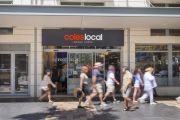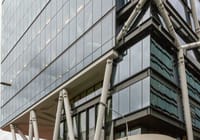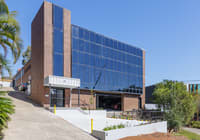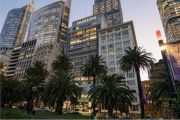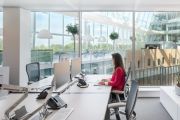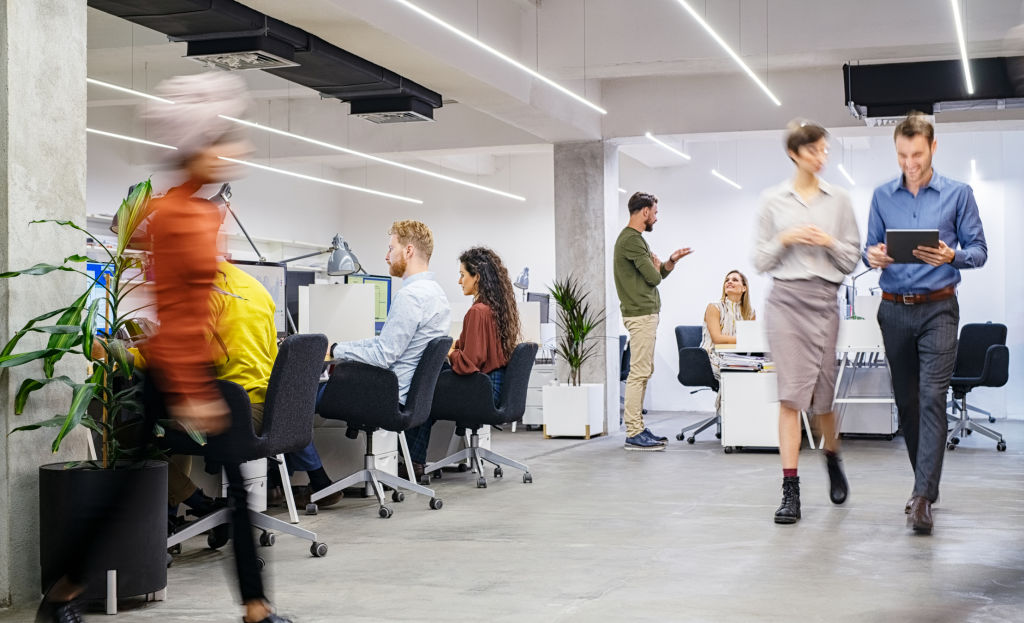
The top factors to consider before signing a commercial lease in 2022
SPONSORED CONTENT
COVID-19 has changed the look and feel of city centres across Australia and this change is bringing opportunities, new perspectives and fresh ways of operating. For businesses and commercial property owners, the post-pandemic landscape is not all bad news.
As society adjusts to the ‘new normal’, businesses and employees are adjusting to a different way of working and this is bringing a shift in expectations, priorities and routines. In turn, this is influencing the kind of commercial spaces that companies and organisations are choosing to lease.
PwC underscored this evolution in the Changing Places: How Hybrid Working is Reinventing the Australian CBD report. It argues that while many commentators have proclaimed the decline of the CBD, in reality, cities remain a key part of our lives.
“The CBD isn’t dying – it’s just changing form,” the report says. “As CBD tenants embrace flexible working, city centres are becoming increasingly attractive to a new wave of businesses.”
“This has the potential to create communities that revitalise the city, sparking new collaborations and fresh energy. This injection of innovation and entrepreneurship is poised to set the stage for future growth.”
Chris Alcock, principal at real estate manager’s workplace consultancy Six Ideas by Dexus, believes bringing together well-designed office spaces and lifestyle amenities, like retail and hospitality, can help persuade employees to return to the office.
“The office is no longer the default location for work,” Alcock says. “Hybrid working is the new normal and we will see workplaces where some people are in the office and some people work from home.
“But the office still has value. It’s important in sustaining a workplace culture, forging social interactions, supporting learning and mentoring new employees and younger staff. So, it’s important that employees come to the office but businesses have to make it worthwhile for their employees to make the commute.”
Another PwC study found that 66 per cent of people still want to connect with colleagues at a physical workplace – just not on every day of the week. The Changing Places report points out that “organisations will need to provide stimulating and inspiring spaces that are designed internationally so that employees who choose to come into the office – in favour of alternatives – are equipped to do their best work”.
Dexus’ 80 Collins Street is a new precinct that has considered the implications of working in a post-pandemic environment. Located at the Paris end of Melbourne’s CBD, it houses contemporary workspaces surrounded by bars, restaurants, cafes, luxury retailers, theatres and sporting facilities. Parliament Station is within walking distance.
“With hybrid working here to stay, businesses are looking at their office space needs as an important element within their workplace strategies,” says Alex Berends, senior manager of office leasing at Dexus. “Offices are no longer about desk space alone – they are as much about how the space is curated, the location and the amenities that will attract the best talent.”
80 Collins has over 90,000 square metres of space spread across the South Tower – 38 levels of premium-grade offices – the North Tower, which is a 51-level, A-grade office tower, and the 255-room boutique Next Hotel. There is also a mix of international and national retail and dining brands. Also within the complex is Dexus Place – a three-level facility that provides meeting rooms and flexible space solutions.
Well-designed and -equipped offices within walking distance of lifestyle amenities are key to attracting talent, sustaining workplace culture, strengthening collaboration and ensuring the ongoing development and mentorship of new employees.
How workspaces are divided is also evolving. A multitude of desks is now surplus to requirements as employees transition between home and the office. So commercial properties are instead including shared desks, project rooms, breakout spaces and videoconferencing facilities.
“The office is the core hub of any business,” Berends says. “It needs to support collaboration, connection and building a culture that makes staff want to come to work. Designing space with technology to support hybrid meetings, quiet spaces for concentrated work and open-plan breakout areas encourages staff to socialise as well as absorb knowledge from their colleagues that they just can’t get at home.
“Throughout 2022, we have seen demand for office space across all sizes continue to grow as businesses have reassessed their workplace strategies and are becoming more certain about what they and their employees need and want out of coming to the office.”
This article has been created in partnership with Dexus.
